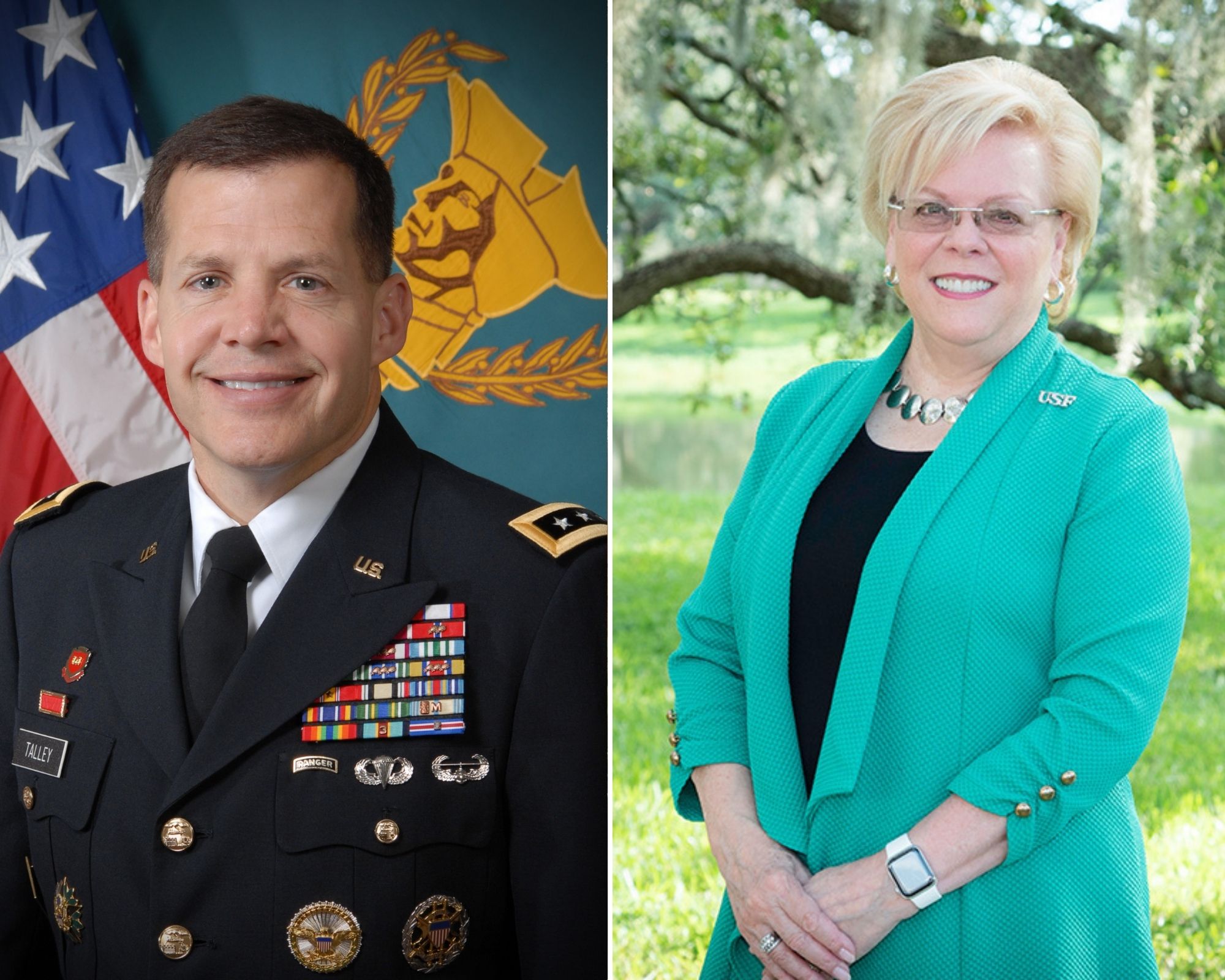EDITORIAL: USF’s presidential search is biased in Law’s favor

The university’s search for its eighth president resembles more of a reelection campaign for Interim President Rhea Law, giving opposition retired U.S. Army Lt. General Jeffrey Talley an inherent disadvantage.
The search feels as if it is being conducted for show and to make the university look like it is continuing a fair contest, as opposed to offering a genuine examination of potential presidents.
For comparison, FSU’s 2021 presidential search totaled a 35-person applicant pool, and elected nine candidates for the interview process, over quadruple the number of candidates as USF’s interview process with just Law and Talley.
With a process that has only examined three applications and interviewed two candidates, the notion of keeping Talley in the race seems theatrical in itself. Presidential searches should be expansive and thorough, something USF has seemingly rejected in favor of Law’s victory.
When Law was appointed Aug. 2, she expressed no interest in the permanent position. However, she changed her mind Feb. 23, a week before a presidential search meeting where she received immediate support from the committee.
As soon as Law threw her hat in the ring for the position, 97% of candidates withdrew their applications, understanding the weight her experience as interim president would have in the Presidential Search Committee’s final decision, according to a March 1 Tampa Bay Times article.
Law’s leadership at USF has birthed a well-received five-year strategic plan, has ended possibilities of future development on the North Fletcher Property and has shown support to build an on-campus stadium. As a result, her efficient use of her eight months in the position serves as an undeniable testimony of her potential once in the permanent position to the committee.
Talley’s resume of leadership positions paired with his experience in academia, which Law lacks, has mobilized him into the final round. The decision came as a result of a simple majority, dwarfed by the unanimous support of Law with votes and vocal discussions among the committee.
Consequently, Talley’s advancement to the final stage of the search was met with his own confusion. Tempted to forfeit his bid to the interim president, Committee Chair Mike Griffin had to convince Talley to stay, ensuring a fair evaluation of both candidates’ potential for the position, according to a March 2 Tampa Bay Times article.
“Although I had been notified by the search firm that I was selected to interview, it was in the context that I would be part of a larger and broader group,” Talley wrote in an email to the Tampa Bay Times.
“After additional discussions with the search firm and receiving a personal call from the Chair of USF’s Presidential Search committee, I was better able to understand how the search committee objectively reached the decision of two semi-finalists.”
Similarly to how Talley is given the respect of consideration for the position for his plethora of accomplishments, the committee’s adornment of Law is justified in her relentless support of USF despite taking the interim position last minute.
Talley’s initial skepticism to the process is valid, as the notable bias the search committee has for Law puts into question its reasoning for keeping Talley as a candidate in the first place.
At the March 1 meeting, there were 18 candidates. The committee members breezed by 15 of them, and only looked at Law, Talley and Dean of Yale’s School of Public Health Sten Vermund’s resumes.
If the university is favoring Law for the position, accepting applications and convincing Talley to stay in the race appears to be for no more than avoiding controversy over the election process.
As committee member Jose Valiente put it after the committee interviewed both candidates March 4, Law is a “known commodity.” That said, her interim trial run as president equipped her with exposure and experience to the university’s community and current dilemmas other candidates’, such as Talley, capabilities are only left to the imagination of the committee.







